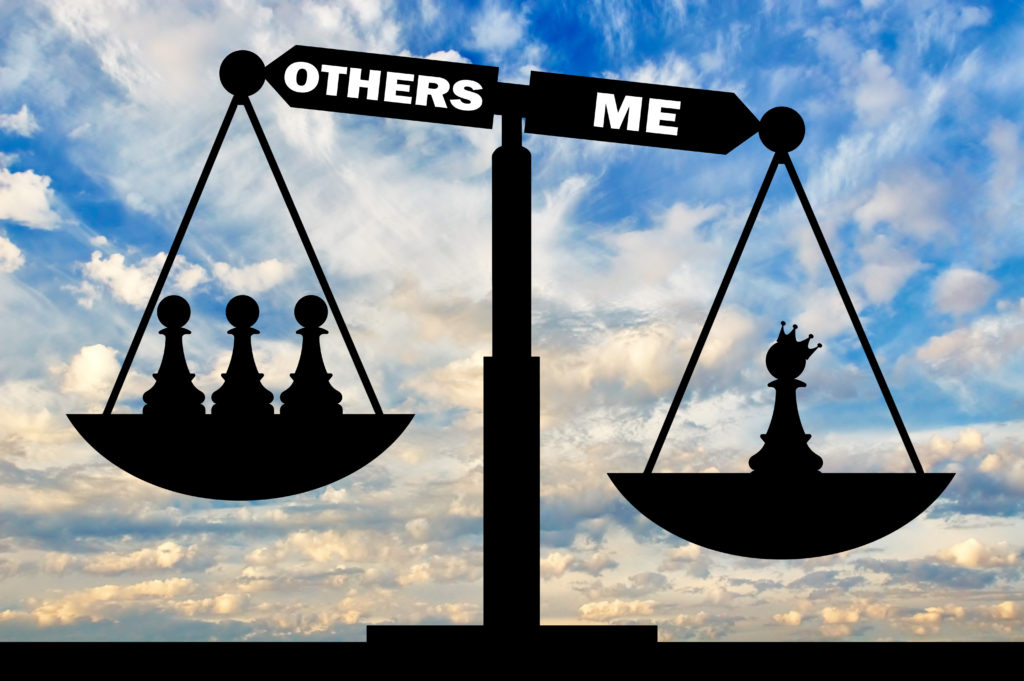Quick Hits
Daily brief research updates from the cognitive sciences

Narcissism is considered one of the three dark-triad traits and something that has been reported as being common in senior leaders.
The important question is can and does this hinder effective business practices or can narcissism give the drive to succeed that can benefit the business? Narcissists themselves would obviously argue that their skills and drive help the business.
This research out of the University of Washington suggests otherwise. And will come as no surprise to many employees and leadership experts.
In this study researchers analysed leaders of busines units of a large Chinese headhunting company. The leaders themselves rated their own narcissistic traits with a standardised questionnaire, the dynamics and complexity of the local market, and perceived competition with other business units. Their deputies were then asked to rate the level of knowledge sharing.
What did they find?
They found that narcissism led to decreased knowledge sharing. However, this was moderated by changing or complex environments. Notably when there was some stability and high inter-unit competition knowledge sharing was particularly stifled.
Some people may claim that having internal competition is beneficial to the organisation, but this shows that when, and if, knowledge sharing is important, which it certainly is in many complex organizations, this can actively hinder this. So be careful of too much internal competition and be careful of narcissistic leaders – or use them cautiously●

Andy Habermacher
Andy is author of leading brains Review, Neuroleadership, and multiple other books. He has been intensively involved in writing and research into neuroleadership and is considered one of Europe’s leading experts. He is also a well-known public speaker speaking on the brain and human behaviour.
Andy is also a masters athlete (middle distance running) and competes regularly at international competitions (and holds a few national records in his age category).
Reference
Xin Liu, Lin Zhang, Abhinav Gupta, Xiaoming Zheng, Changqi Wu.
Upper echelons and intra-organizational learning: How executive narcissism affects knowledge transfer among business units.
Strategic Management Journal, 2022
DOI: 10.1002/smj.3406
More Quick Hits
Behaviour at eight helps predict midlife health behaviours
A long-term study in Finland has tracked children from the age of eight until the age of 50 and a new analysis of the data, just published, has looked at some of the correlations between socioemotional behaviour in childhood and later life achievement and health...
Psychedelics and consciousness
Psychedelics change our conscious experience of the world – that is part of their attraction. Now a new study out of John Hopkins Medicine has analysed data on attributions of consciousness to other animals and innate objects by those using psychedelics and how this...
Lower smartphone usage increases wellbeing
So much has been said about smartphone usage in modern times. This ranges from some who say that they are destroying our brain to others who see they benefit our cognition by outsourcing cognitive heavy tasks like remembering lists of phone numbers – thereby freeing...
Modesty preferred for cooperative teams
In an age where it appears that many people are vying for self-esteem especially through social media, this research is interesting. Particularly in business contexts where cooperation is king. Research has previously shown that appearing to be wealthy increases...
Poverty shrinks babies’ brains
Quick HitsDaily brief research updates from the cognitive sciences couple of studies have just been released which look at the brains of newborns and young babies. The results are worrying for any society. Brain scans of newborn babies from...
Babies born with five from seven functional brain networks
In the 1950s the blank slate theory was the most prominent theory ascribed to babies. They are born blank slates and then their experiences allow them to develop their networks thoughts, associations, etc., and just about everything else. Though this theory is long...






